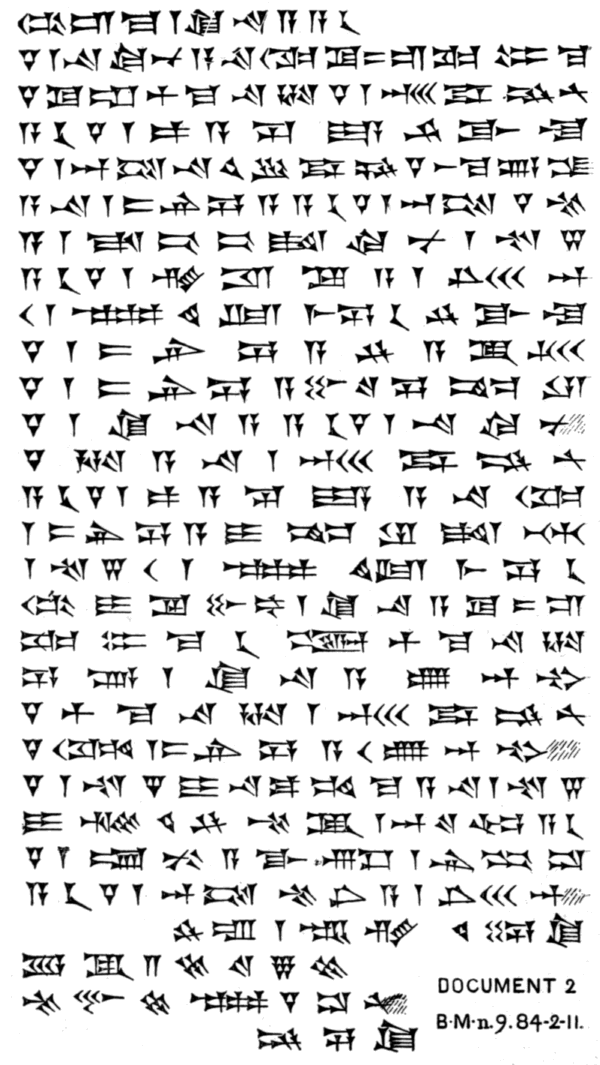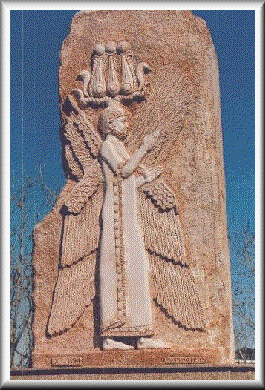The Politics of God and Man
Week of Monday November 1, 2004
Lectionary Readings (Revised Common Lectionary, Year C)
Daniel 7:1–3, 15–18
Psalm 149
Ephesians 1:11–23
Luke 6:20–31
On Tuesday we vote for a president, and as providence would have it the lectionary for this week includes the story of Daniel, a righteous Jew who served for seventy years as a senior official in the government of pagan, enemy Babylon. Like Joseph who served in the cauldron of Egypt, Daniel provides us with a model of engaging the political powers fully and faithfully, all the while maintaining ultimate allegiance to Yahweh. The book that bears his name recounts the intersection of the politics of God and the politics of man, especially as they played out under successive global regimes—Nebuchadnezzar and Belshazzar of Babylon, Darius the Mede, Cyrus of Persia, the rulers of Greece, including Alexander the Great, and the Roman Empire. Most important of all, the book assures us that beyond these earthly, political kingdoms, there is a far more powerful kingdom of God that supercedes and transcends them all.
 |
Babylonian tablets from the British Museum |
Daniel did not seek government employment; far from it. As a young boy he was deported from Jerusalem to Babylon along with the Hebrew intelligentsia, and as often happens when enemies forcibly relocate the vanquished, the Babylonians immediately stripped him of his native language, his name, his literature, his culture, his diet, and then subjected him to a three-year "re-education" program. Once there, Daniel did not shrink from fully embracing and engaging his new surroundings; he even thrived and excelled. After the three years of re-culturation, he had succeeded admirably, but most revealing was his resolve never to defile himself in his new environment. Pressed into faithful service to King Nebuchadnezzar, yes; pressed into cultural conformity, compromise, or personal defilement, no. Some time as a teenager, Daniel "entered the king's service" (1:19).
Entering the king's service thrust Daniel into a world of state power, intrigue, propaganda, terror tactics and grotesque corruption. If you read straight through the book of Daniel with an eye for political power, you discover a world that sounds frighteningly modern. The ancient writer gives new meaning to the word Realpolitik: oppressive taxation, ruthless persecutions of the saints, state banquets that feature brazen sacrilege, bribery, insanity and madness (I mean this literally, not figuratively), architectural monstrosities to glorify the rulers, pathological insecurity of kings, the demand for ideological purity, purges of everyone whose loyalty is suspect, intoxication with power, feigned humility toward God to preserve power, the dismemberment and burning alive of detractors, rule by fear, untrammeled insolence, fury and rage. These earthly rulers, we read in the text for this week, can "cause astounding devastation" (8:24), and more often than not "do as they please" with impunity (11:36–39). Nebuchadnezzar epitomized this world of earthly power when he made a gold image of himself ninety feet high and nine feet wide, and then ordered his subjects to bow down to it (3:1).
 |
Bas-Relief of Cyrus the Great of Persia (580–529 BC) |
How did Daniel respond? His genius was somehow to serve this sordid regime fully and faithfully, rather than to withdraw into passivity in order to keep himself "clean" and let others do the dirty work. At the same time, he maintained his personal and religious integrity. He rejected bribes. He defiantly refused to worship the image of Nebuchadnezzar (civil disobedience), and invoked something like a conscientious objector status to some policies of his three year "re-education" program. When push came to shove, he did not shrink from delivering very bad news to the king. All this came at a high price, though: the threat of death by being burned alive, fed to the lions, and being ostracized by his jealous colleagues. When his administrative colleagues sought to destroy him, the verdict on Daniel was that "they could find no corruption in him, because he was trustworthy and neither corrupt nor negligent" (6:4). So, Daniel served the political powers of his day with professional competence and personal integrity, with his eyes wide open to the true nature of his environment, and with an iron will not to defile himself.
Daniel's success was not earned with a strategy of peace at any price, the path of least resistance, keeping quiet, passive neglect, or a fear of conflict and confrontation. He was anything but a political sycophant who was uncritical of his own regime. Instead, he boldly spoke truth to power. Consider these three examples.
Nebuchadnezzar asked Daniel to interpret his dream of an "enormous, dazzling statue, awesome in appearance" (2:31). We are not surprised to learn that the statue in this dream represented Nebuchadnezzar himself, and the regimes that succeeded him. That would have been bad enough. But Daniel delivers the really bad news that the rock in the dream is yet another kingdom that pulverizes the magnificent statue so that its shards were like leftover chaff: "the wind swept them away without leaving a trace" (2:35). Daniel warned Nebuchadnezzar of the transitory nature of his reign, and humiliated him with news that before too long not even a trace of his glory would remain. In a second dream interpretation, Daniel informed Nebuchadnezzar that he would be like a majestic tree hacked down to a mere stump. As for Belshazzar his successor, Daniel compared him to a unit of money that was "weighed on the scales and found wanting." He assured the king that his kingdom would be brought to an abrupt end (5:26–27). To say that Daniel was brave is an understatement. He "stood up" rather than "bowed down" to the image or reality of political power, even as he served those powers as God had called him.
 |
The prophet Daniel (c. 1190) |
Daniel did not confuse loyal service to state power with uncritical patriotism, party loyalty, or political ideology. One reason for this, I think, is that God repeatedly reminded him of another very powerful kingdom that was quite distinct from the type he served. Today Christians think of this other realm and rule as "the kingdom of God." Daniel alludes to it several times (2:44ff, 7:13–14, 26–27). This rule by Yahweh transcends and supercedes earthly kingdoms. Its trans-global character embraces rather than divides peoples from "every nation and language." In contrast to the rise and fall of the transient, earthly kingdoms, this kingdom of God "is an everlasting dominion that will not pass away, that will never be destroyed" (7:14). When we turn to the Gospel reading for this week (Luke 6:20–31) we learn that this other kingdom comes to the poor, the hungry, those who weep, and those whom the powerful marginalize. In God's eternal kingdom people forgive their enemies rather than dismember them and burn them alive. If the basic rule of survival in most political kingdoms is "do to others before they do to you," in the kingdom of God the so-called Golden Rule reigns: "Do to others as you would have them do to you" (Luke 6:31).
Daniel gives us a philosophy of human history whereby Yahweh rules, and even over rules, nations, kingdoms and rulers. Somehow he nourished the moral and spiritual imagination to believe with confidence that Yahweh worked in the pagan governments of Babylon, Persia, and Greece, far beyond the geo-political and even religious arenas of the leftover rubble that used to be the holy temple of Jerusalem. He believed that amidst the sordid regimes of Nebuchadnezzar, Belshazzar, Darius and Alexander the Great, Yahweh still had His providential hand on human history and on his choice servants who stood firm to speak His word and do His will.





